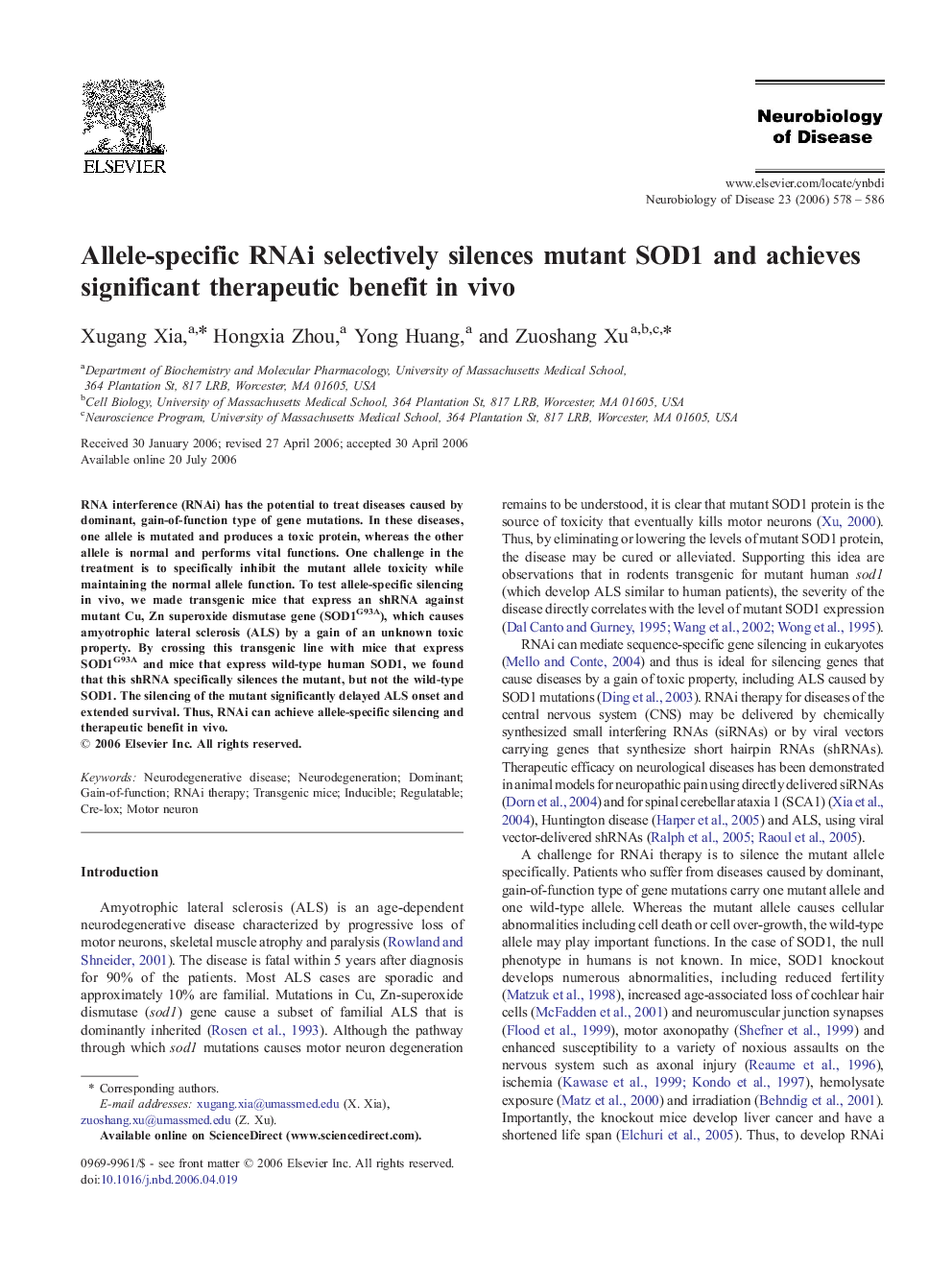| Article ID | Journal | Published Year | Pages | File Type |
|---|---|---|---|---|
| 3070626 | Neurobiology of Disease | 2006 | 9 Pages |
RNA interference (RNAi) has the potential to treat diseases caused by dominant, gain-of-function type of gene mutations. In these diseases, one allele is mutated and produces a toxic protein, whereas the other allele is normal and performs vital functions. One challenge in the treatment is to specifically inhibit the mutant allele toxicity while maintaining the normal allele function. To test allele-specific silencing in vivo, we made transgenic mice that express an shRNA against mutant Cu, Zn superoxide dismutase gene (SOD1G93A), which causes amyotrophic lateral sclerosis (ALS) by a gain of an unknown toxic property. By crossing this transgenic line with mice that express SOD1G93A and mice that express wild-type human SOD1, we found that this shRNA specifically silences the mutant, but not the wild-type SOD1. The silencing of the mutant significantly delayed ALS onset and extended survival. Thus, RNAi can achieve allele-specific silencing and therapeutic benefit in vivo.
